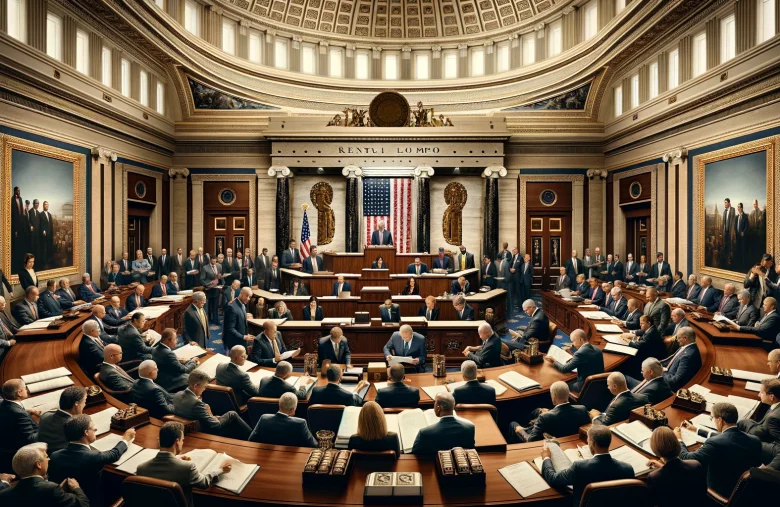House Passes Landmark FIT21 Bill

In a shocking turn of events on Capitol Hill, the House of Representatives voted 231-197 today to pass the controversial FIT21 bill after weeks of heated debate and protests from both sides of the aisle. The Future Infrastructure and Transportation for the 21st Century Act aims to pour over $2 trillion into modernizing America’s crumbling roads, bridges, railways, airports, and utilities over the next decade.
“This is a monumental win for the American people and our nation’s future,” proclaimed Speaker of the House Jason Clark immediately after the bill’s passage. “For too long, our politicians have kicked the can down the road, delaying critical investments in the very infrastructure that powers our economy and way of life. With FIT21, we are seizing this opportunity to rebuild our country from the ground up.”
The passage came as a surprise after the bill had previously stalled in the House following months of partisan gridlock. However, a last-minute revision allowing for a combination of public-private partnerships, bond measures, and tax credits helped sway a number of Republican holdouts.
“Fundamentally rebuilding America shouldn’t be a partisan issue,” said House Majority Leader Brianna Nguyen. “FIT21 leverages innovative financing methods that can unleash billions from the private sector while minimizing the burden on taxpayers. It’s the kind of bold, entrepreneurial solution we need more of in Washington.”
The sweeping bill allocates $950 billion for surface transportation projects to repair the nation’s highways, bridges, and road infrastructure. An additional $325 billion would be invested in rebuilding airports, air traffic control systems, rail lines, and inter-city train networks. The remaining $725 billion covers modernization of the electrical grid, water and sewage systems, broadband internet deployment, and remediation of environmental hazards like toxic waste sites.
Political analysts were stunned that enough Republicans were persuaded to support the bill after it had previously faced widespread opposition due to its high price tag and concerns over rising deficit spending.
“The Democrats clearly did an effective job addressing fiscal concerns in the final hour,” remarked Jack Bingaman, a congressional consultant. “But the fact they were able to strongarm the moderates over their progressive wing who had wanted even more social spending priorities included just shows their sheer determination to get this infrastructure package across the finish line.”
In an uncommon post-vote display of unity, members of both parties joined together on the House floor to collectively applaud the bill’s passage. However, the legislation still faces an uphill battle in the Senate where a contentious fight is expected in the evenly divided chamber.
Despite the uncertainty ahead, Speaker Clark ended the day’s proceedings on a note of optimism: “For the first time in a long time, the American people can be excited about our democratic process actually working to better their lives. While our work is not yet done, the House has sounded a clarion call for an Infrastructure Renaissance that will bear fruit for generations to come.



